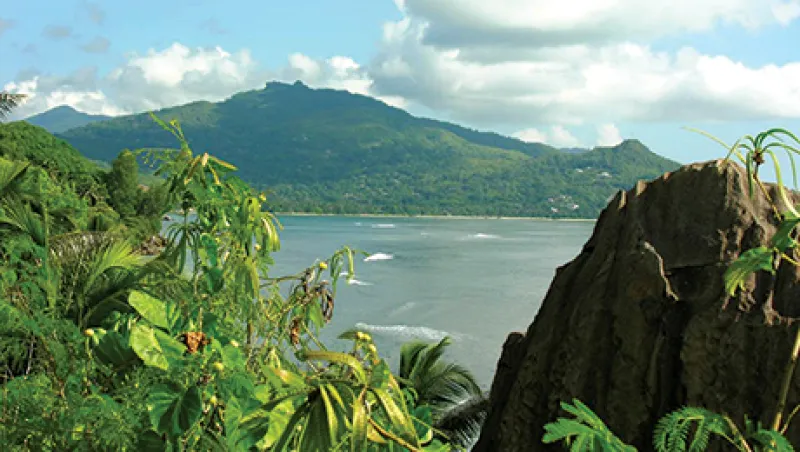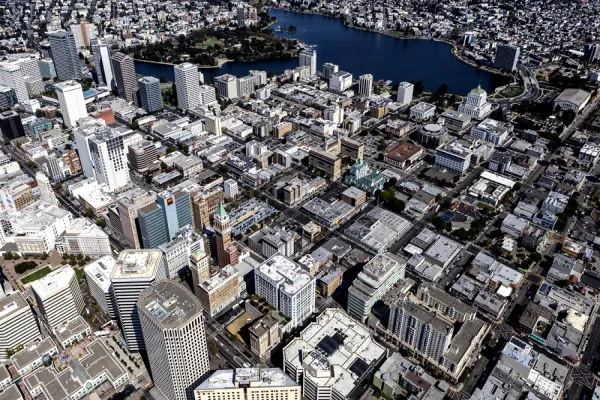The Seychelles, a picturesque 115-island nation off the coast of East Africa, is known for its pristine beaches and exotic wildlife. But this archipelago in the West Indian Ocean is also the site of a new financial product that aims to reduce debt and climate-change mitigation pressures for the country’s government and its 90,000 citizens.
Ninety-nine percent of the Seychelles’ territory is ocean, so economic growth hinges on marine conservation. But in recent years that reliance has left residents worried as they witness extreme weather, ocean acidification and other effects of climate change. Burdened with public debt that amounts to 65 percent of its $1.4 billion gross domestic product, the country can’t afford to confront these problems alone.
“We are constantly aware of the vulnerabilities our people and economy are exposed to as a direct result of climate change,” Ronald Jumeau, the Seychelles’ ambassador for climate change and small island developing state issues, wrote in a recent op-ed. “And because our resources are so limited, we have to stretch them in unique ways.”
Help recently arrived in the form of a debt swap in exchange for commitments to a climate adaptation plan. Announced at December’s 21st Conference of the Parties to the United Nations Framework Convention on Climate Change in Paris, this deal will see the Seychelles restructure almost $30 million in debt with the aid of $23 million from NatureVest, the impact investing unit of the Arlington, Virginia–based Nature Conservancy, and $7 million in philanthropic grants. The government will reroute debt payments into an independent trust dedicated to measures that will reduce the country’s sensitivity to climate change along its coasts and within marine areas.
This effort is the brainchild of Robert Weary, senior director of product development at NatureVest. Weary based it on similar Nature Conservancy debt swap products that helped countries such as Belize and Costa Rica trade debt for conservation, but he says he tweaked the new version in several ways: “There are a few firsts in this Seychelles deal.”
For starters, no previous debt swap used impact capital or financed climate adaptation. The Seychelles swap also includes a policy component that Weary believes is another innovation. The deal encourages the Seychelles government to expand its marine protected systems and no-take zones — places where fishing, mining, drilling or extraction of any kind is forbidden. Proceeds from the swap will help to fund the enforcement, management plans and restoration work required to keep these areas safe.
Small island developing states, or SIDS, like the Seychelles are highly vulnerable to the double threat of indebtedness and climate change. Last year the United Nations Development Program found that 15 of the 39 SIDS that are U.N. members had public debt–to–GDP ratios higher than 60 percent. Four SIDS — most of them in the Caribbean — reported debt-to-GDP ratios above 100 percent.
“Debt and natural exposure compound each other,” says Francisco Carneiro, Washington-based lead economist and program leader for the Caribbean at the World Bank Group. “Every time there’s a natural disaster, losses can be large — larger than a country’s own GDP sometimes. It can be hard to get out of the high-debt/low-growth spiral.”
NatureVest’s Weary intends to scale the Seychelles model. Grenada and Jamaica have expressed interest in analogous deals, and he hopes to have them in place within 12 to 18 months. In the South Pacific, Palau and the Marshall Islands — whose land mass is vanishing beneath the waves — also wish to follow suit.
To keep going, Weary must attract other impact investors, but he admits he’s stumped. “That’s the next nut to crack,” he says. “But from what I’m hearing, there’s no appetite from impact investors on deals longer than ten years. I need 20-year money to really make these work.”
Carneiro says the World Bank is helping to bring the debt swap product to Jamaica, which carries almost $700 million in structural bilateral debt. Negotiations haven’t moved beyond talks with the country’s creditors, but he expects that the Jamaica and Seychelles deals will serve as a springboard to create a revolving World Bank fund for financing similar products.
“We’re hoping it’ll be a huge success,” Carneiro says, stressing that time is short for cash-strapped island states to build resilience to climate change: “With that success, we can approach donors and investors in various regions.”






